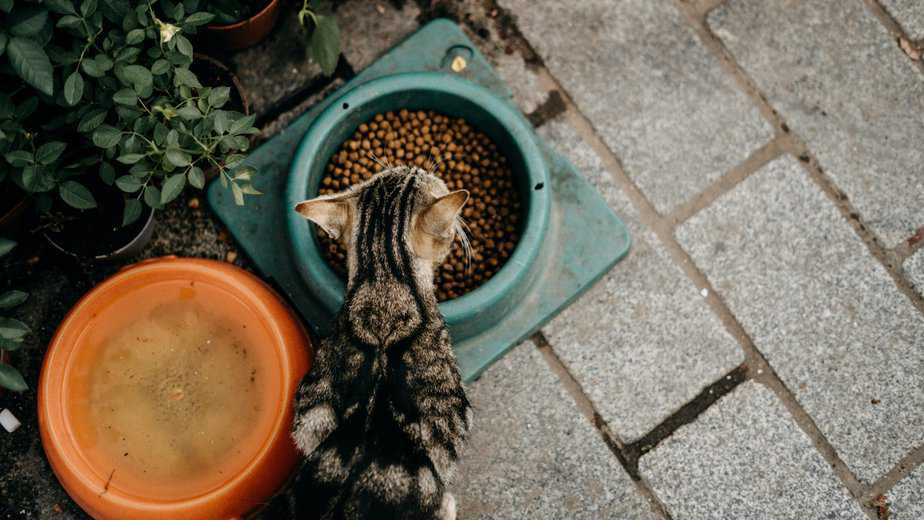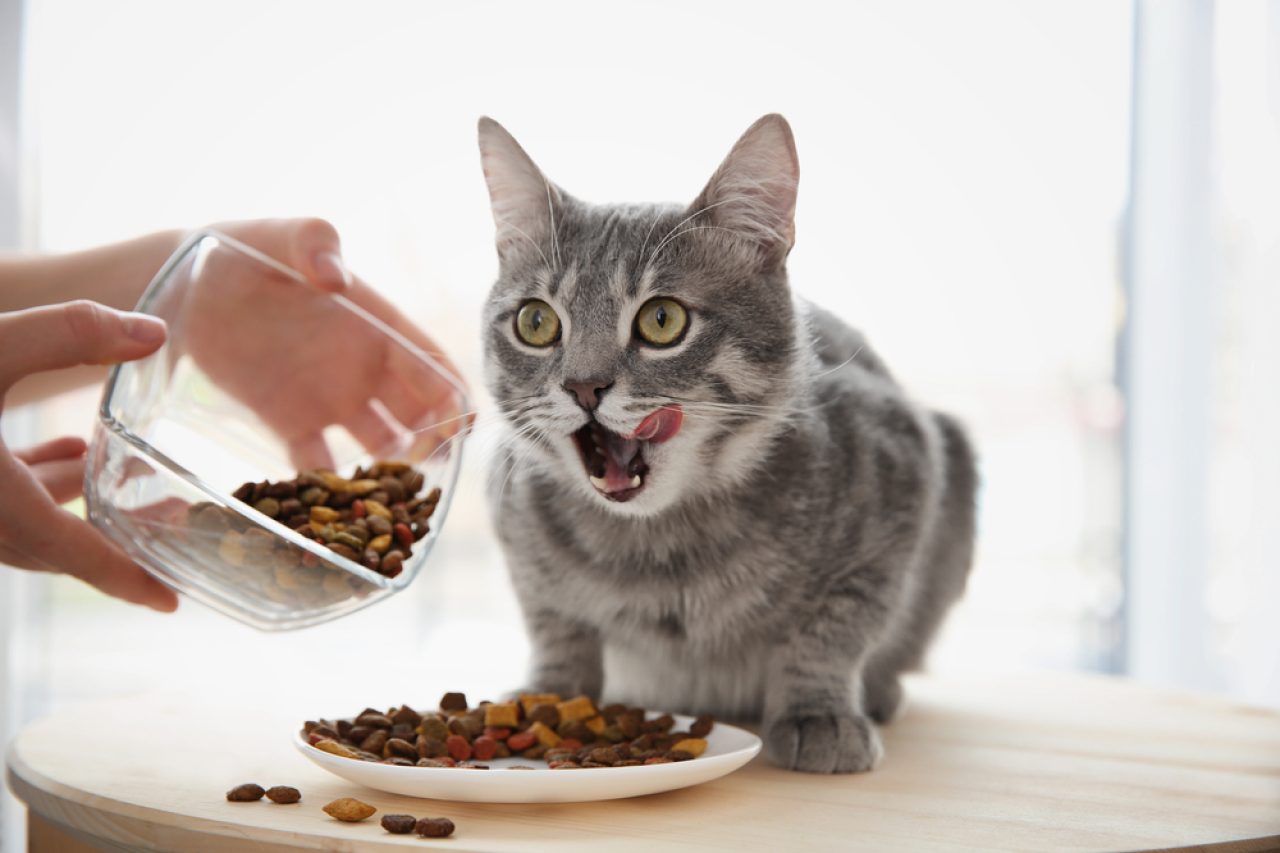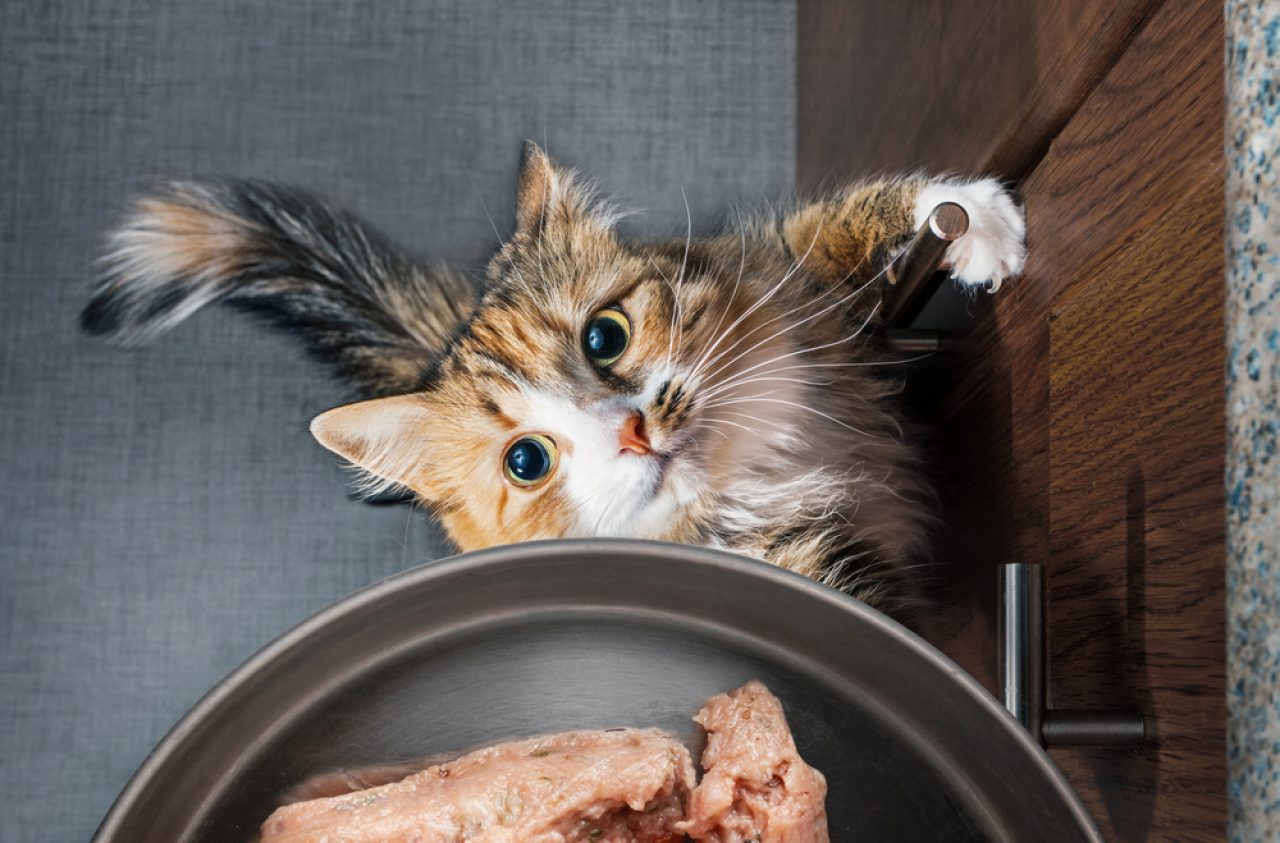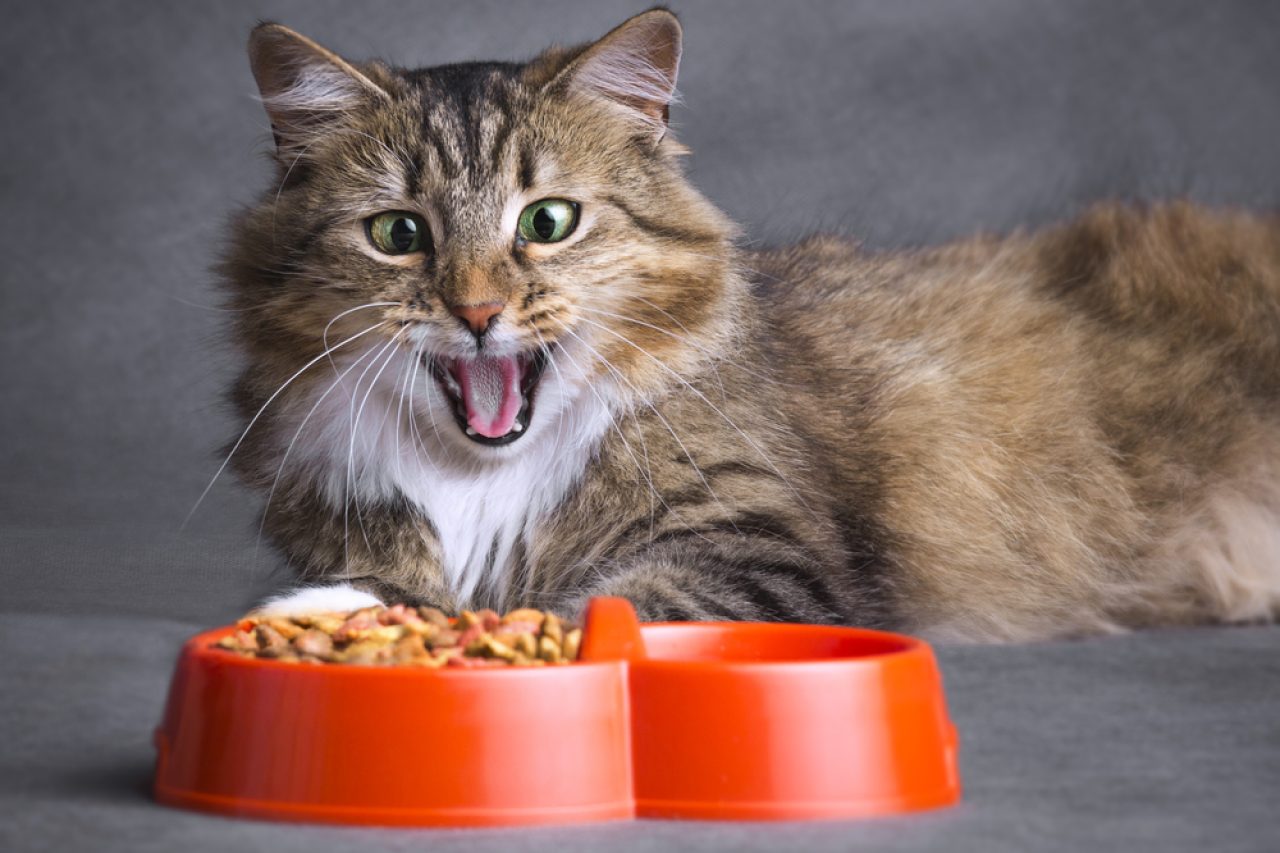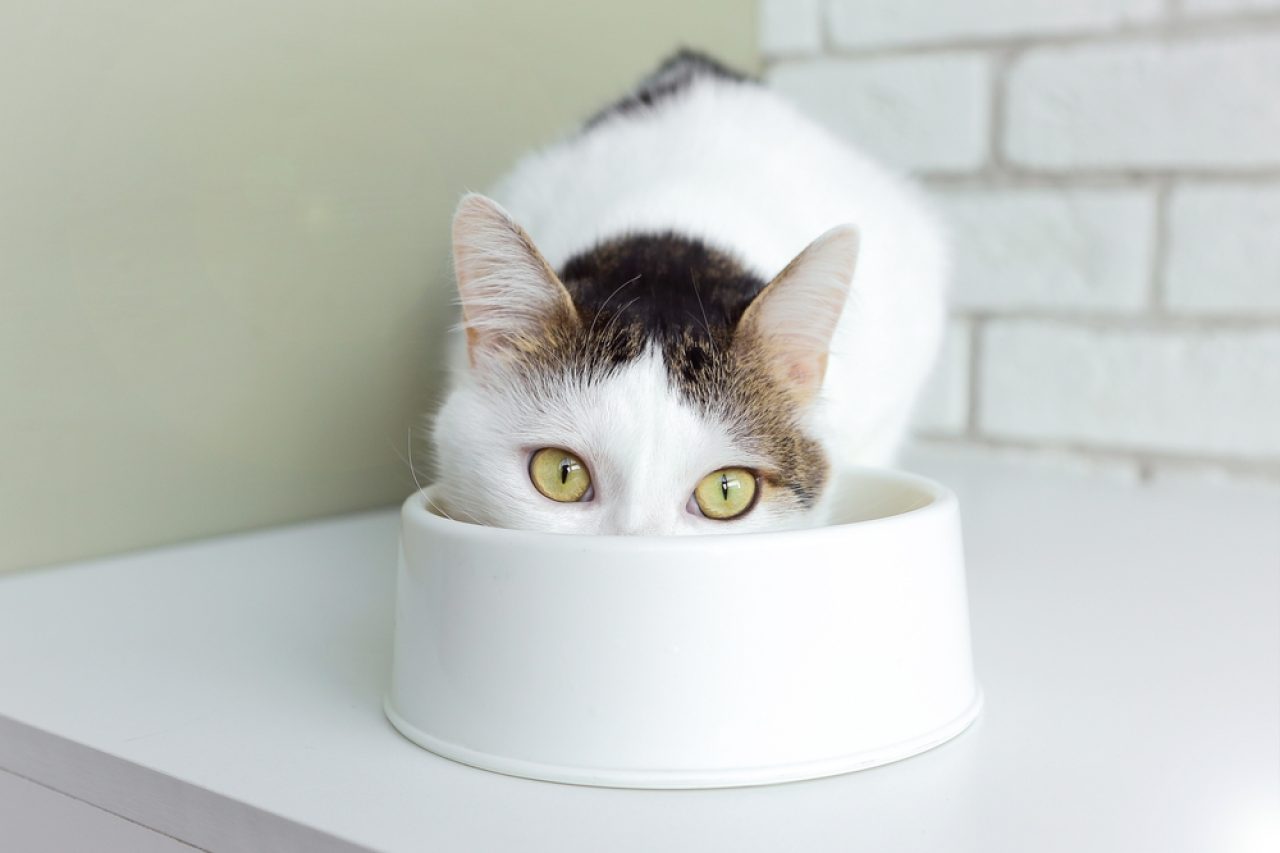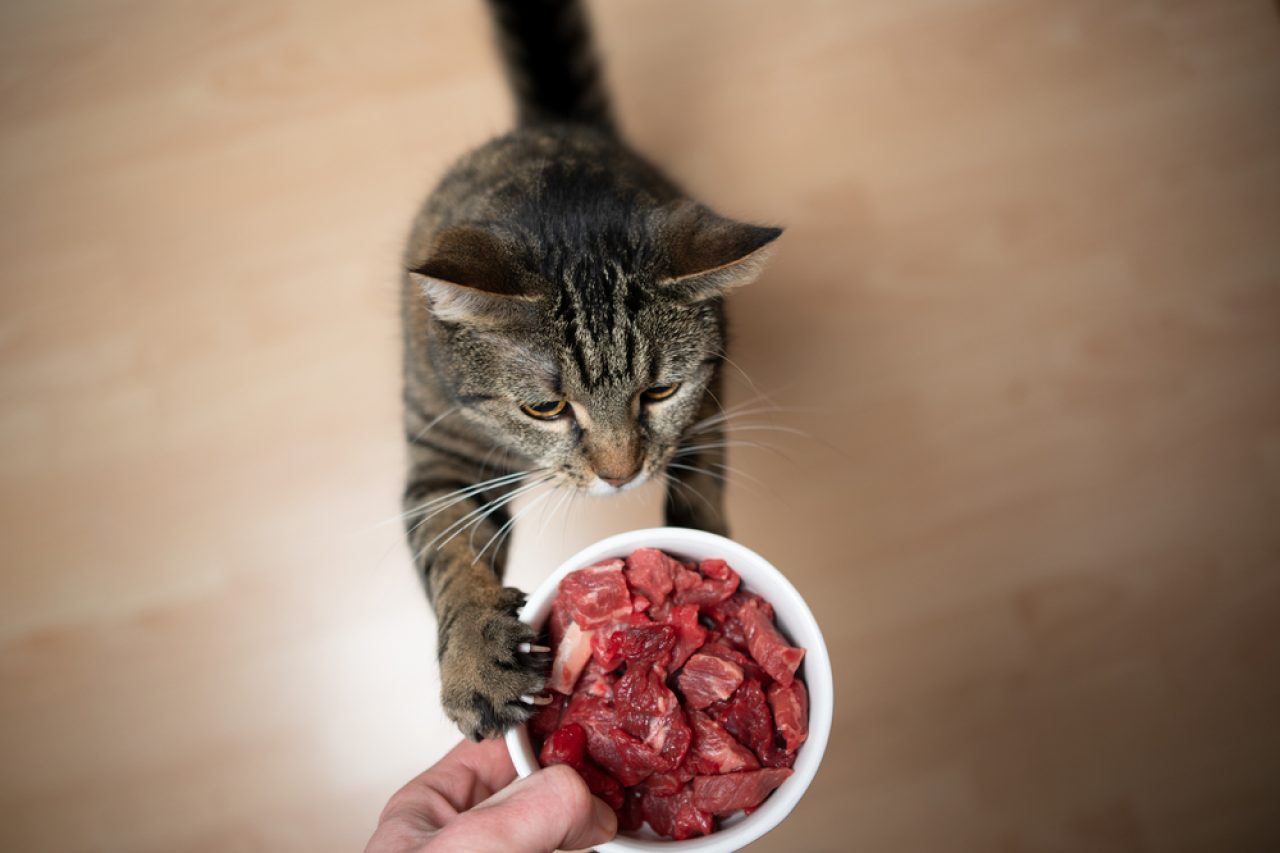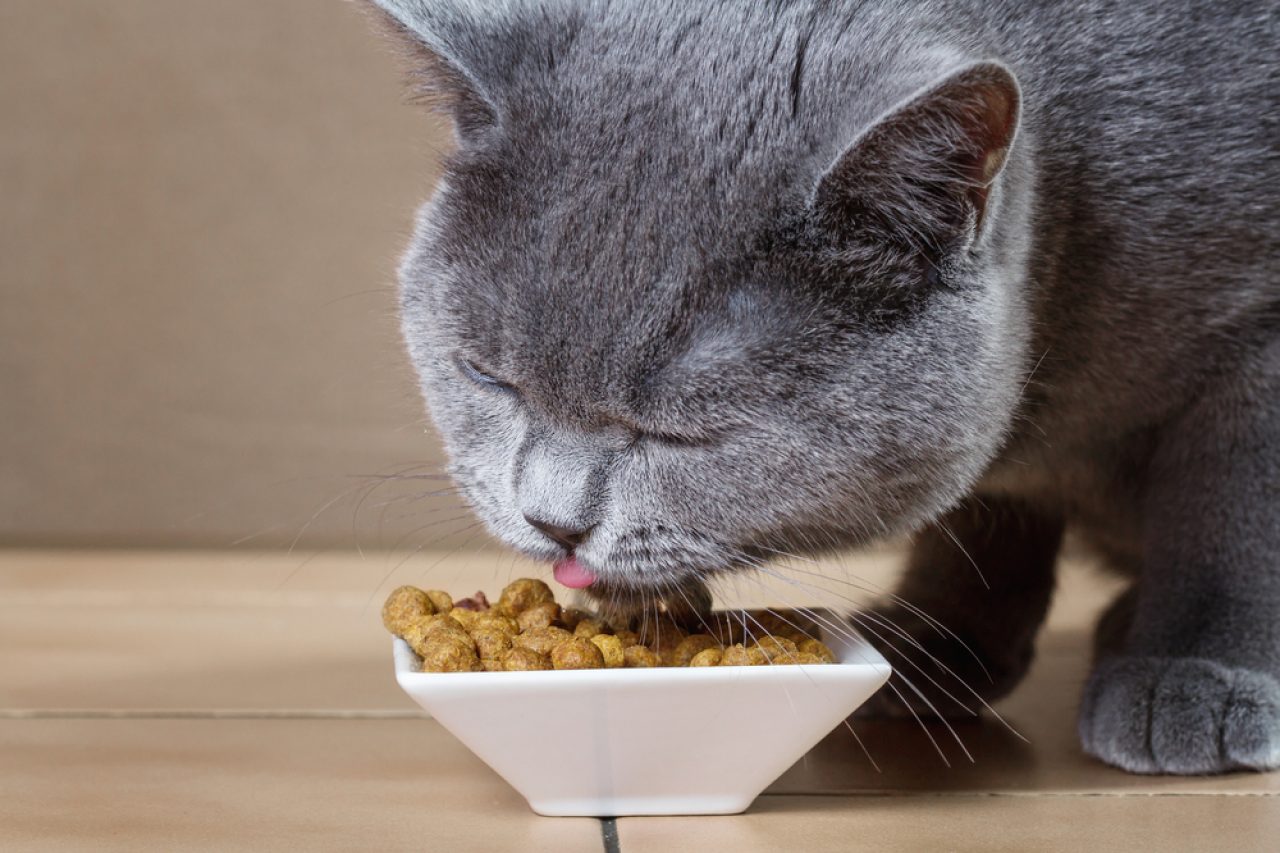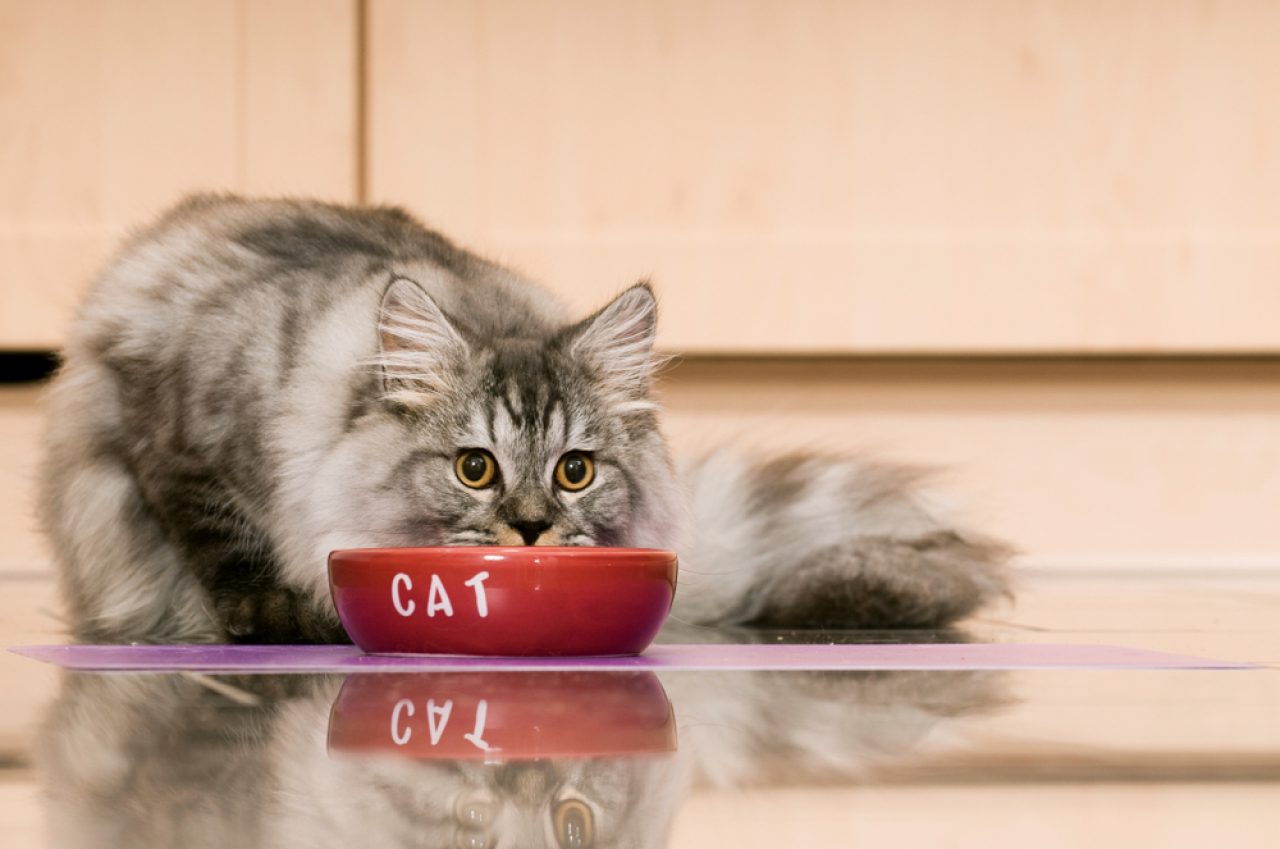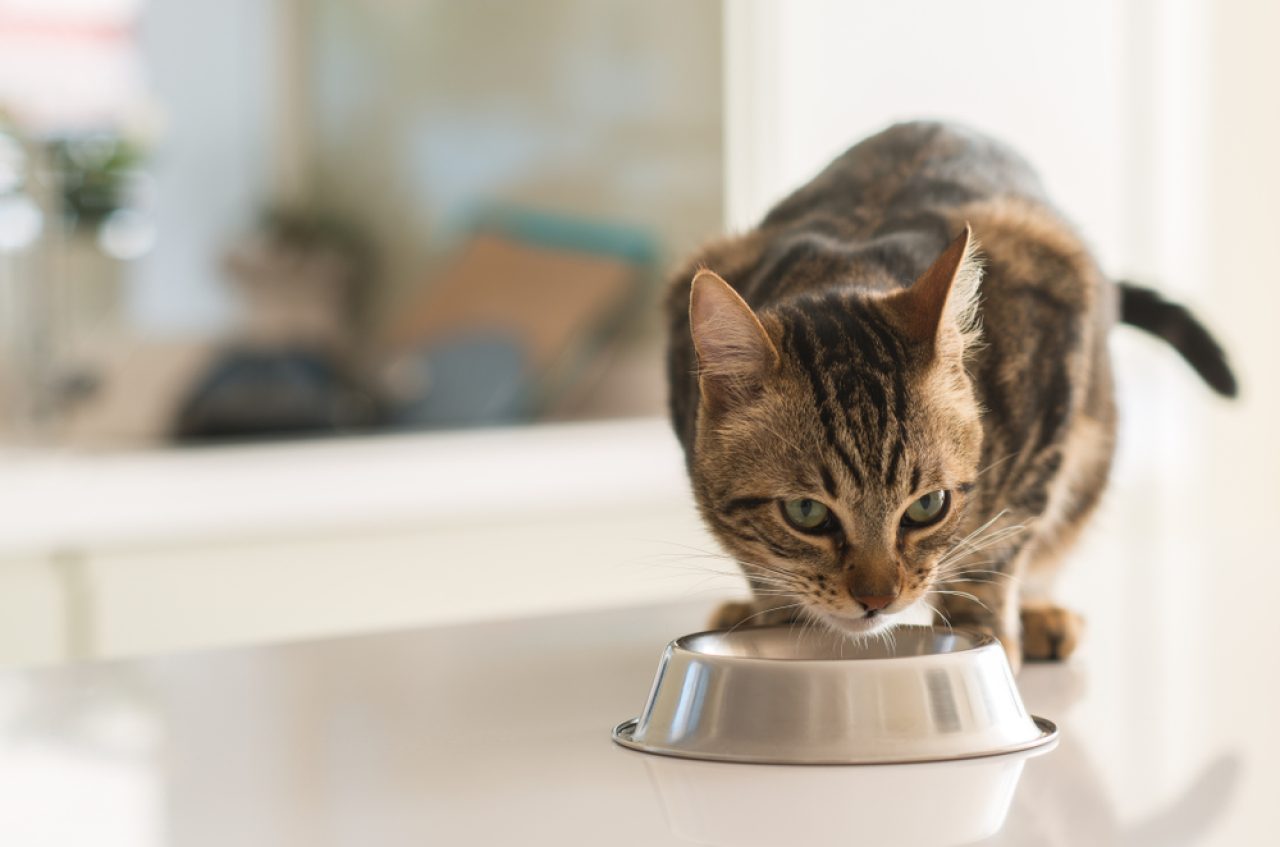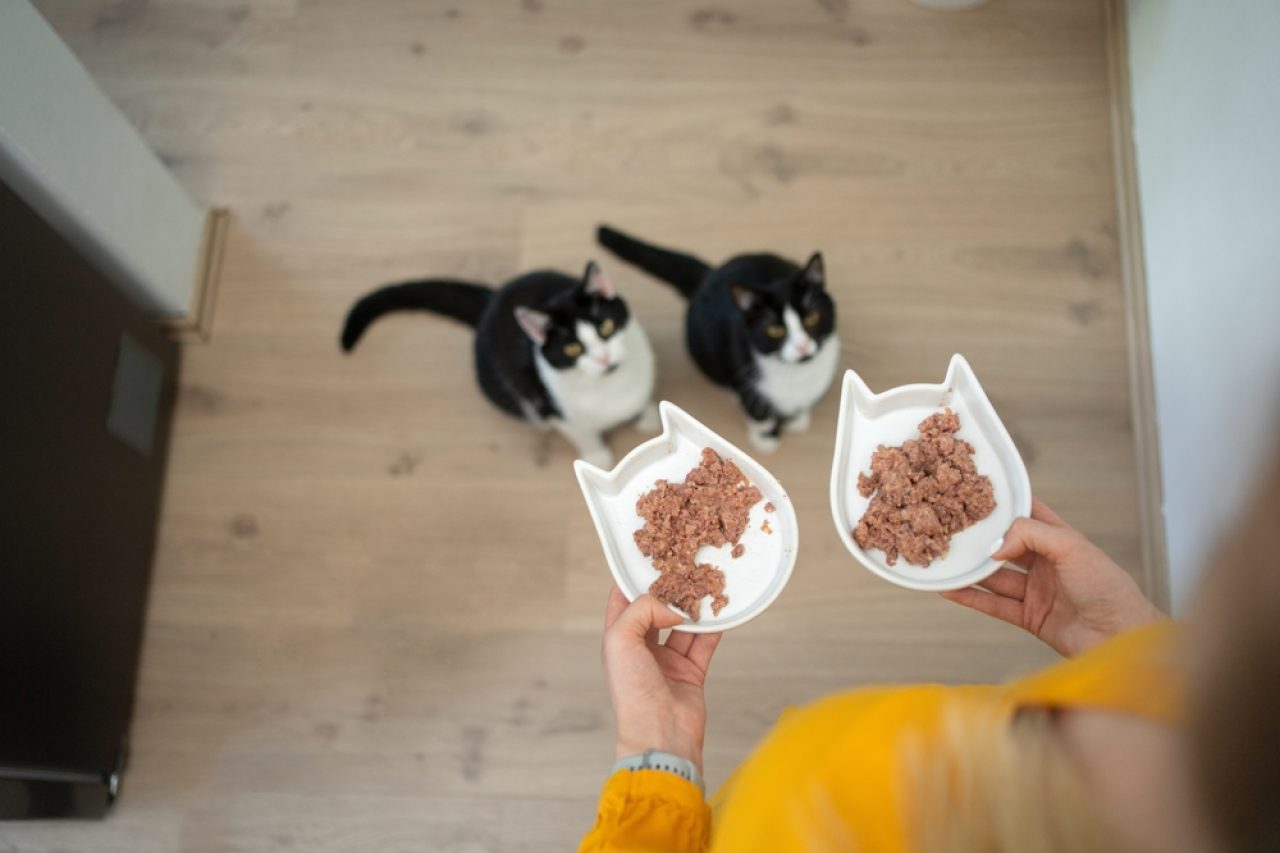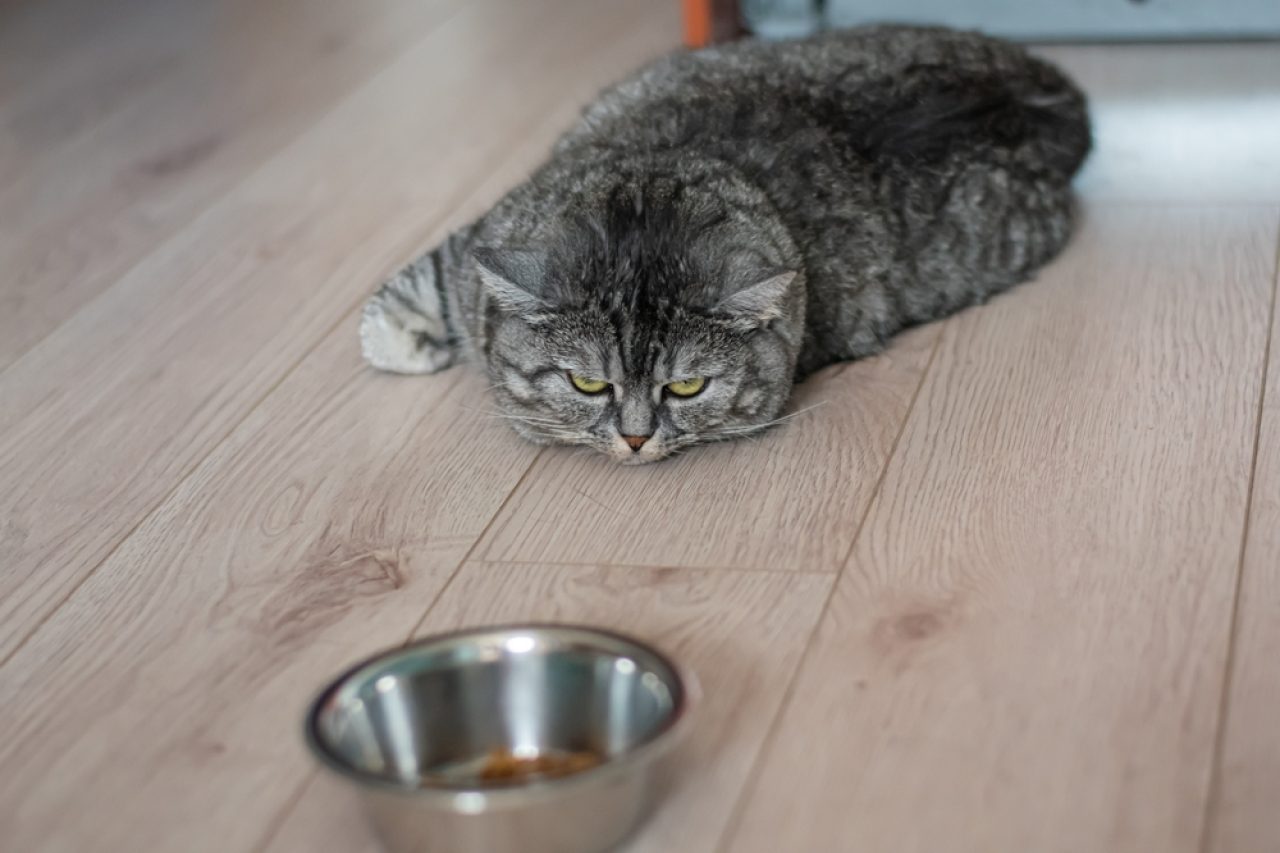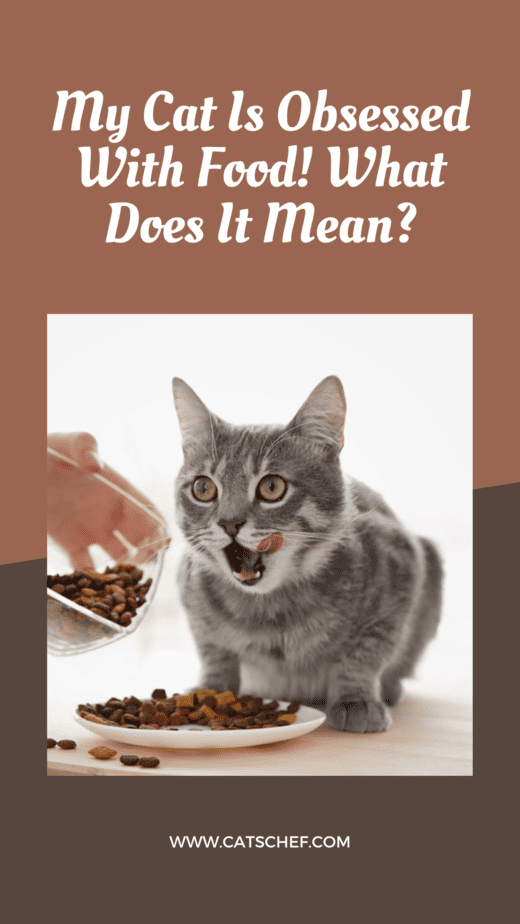📖 Table of Content:
Everyone who has a four-legged friend knows how much they love to eat. Feed your kitty 5 times a day and she’ll act like she’s never eaten before. If this often happens, then you might be on the verge of admitting it to yourself – yes, my cat is obsessed with food. However, that’s not always the best idea.
It’s one thing for your fluffy bestie to love food, and it’s an entirely different thing for her to be obsessed with it. It can be an indicator of a lot of things, and you shouldn’t simply accept it and let your fluff live like that. Since you’re here, you’re probably thinking there’s a deeper meaning to it.
And, there is. Any change in your kitty’s behavior should be a cause for concern, especially when it comes to her eating habits. Being overly excited about food can be just as bad as not having an appetite at all, even though a lot of people ignore it.
Since you’re here, we assume you’re not one of them. Pat yourself on the back for being a good cat parent, and let’s find out more about food obsession in cats. What are some signs that your fluff might have it, what are the possible reasons, and how can you help her? We’re here to answer all of your questions.
7 sings your fluff might be obsessed with food
Listen, all kitties are a bit crazy when it comes to food. They’ll run to the kitchen like their life depends on it, just because you’ve opened your fridge or they’ve heard you rustling some bags.
However, at one point, their love for food might turn into an obsession. Since they generally love food, it’s hard to notice if your feline has an eating disorder. If you suspect she does, let’s see what are some signs you should look out for.
1. She’s impatient
Okay, our feline friends aren’t known as the most patient beings out there, but there are still some boundaries. It’s normal for your kitty to rub all over your legs when you’re preparing a meal, but sometimes, she goes a bit too far.
If your cat won’t stop meowing for food, rubbing all over your legs, and she’s always trying to grab food from your hands – she might have a problem. She’s either starving or dealing with some kind of food obsession.
Yes, all cats are impatient when you’re preparing their meal or become extra annoying when you’re cooking, but extreme impatience shouldn’t be ignored, especially if she hasn’t been like that before.
2. She’s overly excited
We can’t blame our fur babies for getting excited about dinner time. C’mon, we know you’ve caught yourself humming or squirming in your chair when you notice the waiter carrying your food. Cats are no different; we all love a tasty meal, especially if we haven’t eaten in some time.
However, if your kitty is always getting in your way, and being overly excited around food, you shouldn’t ignore it. Especially if it’s a new kind of behavior for her. It’s a good indicator that your cat might be obsessed with food.
3. She’s aggressive when it comes to food
If you’re holding your palm, trying to cover the new wound on it, thinking “My cat is obsessed with food!” after she scratched you and hissed at you over her bowl of food – you’re probably right. Aggression is never something you should let slide and ignore.
If your cat is always protecting her bowl and hissing or growling at you during mealtime, it’s a pretty big sign that she might be food-obsessed. If you live in a multiple-cat household, this can easily escalate and create a lot of issues for you, so make sure you find a way to stop it.
4. A never-ending appetite
Although it seems like our feline buddies are always hungry, they still have some boundaries. For example, a healthy cat won’t ask for more food after she’s just done eating, while an obsessed kitty might constantly be looking for something to eat.
Any cat that’s obsessed with food will look for it everywhere. She’ll search your garbage can, eat leftover scrubs on the floor, or even learn how to open your fridge. In extreme cases, some cats even develop pica syndrome and start eating non-edible food, such as strings, ribbons, plastic, and more.
5. Changes in her vocalization
Every cat parent knows how annoying it can be hearing their meowing machine yowling in the middle of the night, asking for some food. No matter how irritating it can get, it’s completely normal behavior that we have to deal with.
However, what’s not normal is your kitty crying for more food after you just fed her. She either has a food obsession, or you might have to consider feeding her more.
6. Fast eating
Since cats always eat like they haven’t been fed before, it’s normal that some of them eat fast. But, if you’re thinking “Oh no, my cat is obsessed with food!” because you’ve seen her gulp down her food and vomit it out moments after, that’s usually not a good sign.
If you’ve adopted your kitty from the street, then that could be the reason why she eats so fast. It’s common for stray cats to fight with other felines for food. This traumatic experience from her past could easily lead to developing an obsession.
7. Changes in her behavior when eating
Having a kitty who’s obsessed with food makes it impossible to eat in peace or keep food on the table. There’s always someone behind your back, waiting to paw some food off your plate. Sometimes, you simply have to keep your little feline buddy in another room just to have a peaceful dinner with your family.
This constant urge to eat is something you should take seriously, especially if your cat has regular, high-protein meals. Don’t worry, you can alter this behavior, but it’s important to know the reason behind it first.
My cat is obsessed with food: possible reasons
If you’re one of the lucky cat parents, your kitty probably self-regulates her food intake. That means you can easily give her a meal in the morning and she’ll eat as much as she needs throughout the day. However, not all cats can take the same approach.
There are many things that can influence your feline’s obsession with food. Sometimes it’s the quality of the food you give her, sometimes it’s the way you feed her, but there’s always something that your kitty is trying to tell you. Let’s see what are the most common reasons why this might be the case.
1. Food obsession might be a sign of disease
If you’re thinking “My cat’s obsessed with food, what do I do?”, the last thing you probably want to hear is that it has something to do with her health. Unfortunately, that’s a pretty common reason for this type of behavior.
It could be something hereditary, too. Some cats simply have a genetic predisposition to have a big appetite, and that can depend on the type of breed you have. For example, Siamese cats often eat rather quickly. It doesn’t mean they’re obsessed with food. It’s simply something that’s in their nature.
There are some diseases that can influence your kitty’s approach to food. Often, these issues are related to hormonal disbalances, which can make your kitty feel hungry all the time. Here are some other common examples of health-related issues that can lead to food obsession in cats:
- Diabetes: if your feline has low blood sugar, she’ll need to eat and drink often in order to stabilize herself. If you suspect your cat has diabetes, it’s crucial that she is medicated. That way, you’ll keep her hormones balanced.
- Parasitosis: internal intestinal parasites in cats are a common reason behind their unhealthy relationship with food. The most common reason is worms or other parasites in their gastrointestinal tract, which absorb nutrients needed for your kitty to feel full.
- Hyperthyroidism: if your kitty has an overactive thyroid gland, it could affect her appetite and lead to food obsession. It’s common that a cat with hyperthyroidism eats more, yet still remains skinny.
- Cushing’s syndrome: a set of symptoms that’s related to hormone production. It’s often the case that adrenal or pituitary glands over-produce cortisol, which could increase your cat’s appetite.
2. Cats can suffer from eating disorders, too
Just like humans, our feline friends can also suffer from emotional or psychological disorders that can lead to some bad behaviors, including an obsession with food. If this is the case, your kitty might be suffering from psychogenic abnormal eating behavior, also known as food addiction.
Although the causes are unknown, there are some treatments that are based on behavioral therapy and training. Before making sure this is the case, it’s important to take your kitty to the vet so they can rule out any physical disorders. If your feline is healthy, you should speak to a feline educator.
Here are some signs you shouldn’t ignore:
- Your feline taking food from your other pets even after eating
- Hissing and meowing excessively while you’re preparing her meal
- Crying and meowing for food while you’re eating, or taking it off your plate
- Attention-seeking
- Trying to eat non-edible items.
There are some things you can do to help your kitty if she’s dealing with this issue. For example, you can try and spend more time with your fur bestie, as boredom can lead to your kitty eating even if she’s not hungry.
You should always reward good behaviors and ignore bad ones. Scratching posts, toys, and walkways would be a great addition to her environment. Lastly, don’t bring out lots of food in your home, except when it’s time for your kitty to eat.
3. She might need more nutrition in her diet
Before thinking “my cat’s obsessed with food”, think about the type of meals she’s having. Low-quality food usually doesn’t provide enough nutrients, so your feline might start eating more to satisfy her hunger.
You should always examine your kitty’s food by reading the label and checking how rich or deficient in nutrition it is. Make sure it’s rich in proteins and vitamins. Another thing you can do is consult a vet, as they’ll determine the ideal body weight for your kitty and the amount of food she needs to maintain it.
4. Her instincts are fueling her food obsession
No matter how domesticated cats are today, they still have some wild instincts they follow. In nature, they’re used to hunting and eating multiple times a day. Once your feline realizes there’s no food for her to hunt, she might start consuming large amounts in one sitting.
What you can do is try mimicking your kitty’s natural eating patterns. Naturally, our four-legged friends are supposed to consume smaller meals throughout the day. Because of that, you shouldn’t make food available 24/7, as it could lead to binge eating. Scheduling multiple mealtimes or purchasing a timed feeder is a good way to go.
What can you do to help
We get it, it can be exhausting having to keep an eye on your fur baby all the time to avoid her eating your food or consuming something that could be dangerous for her.
If you’re at your wits’ end thinking “My cat is obsessed with food and I don’t know what I can do to help her!”, we’re here for you. Let’s see what are some things you can do to help your dear kitty.
1. Rule out any possible medical issues
If you’ve noticed your fluff overeating, it’s important to rule out any medical issues associated with this type of behavior. That way, you’ll know your kitty is healthy, so you can move on to other possible reasons behind her obsession with food.
You should ask your vet to check your feline’s blood sugar and hormones, as well as test her for parasites, as these are the most common reasons behind an increased appetite. If you do it on time, you can manage her health issues with a proper diet and medication.
2. Improve your feline’s diet
We know how expensive it can be to feed your cat high-quality food, but it could actually save you some money on top of being a lot healthier for your kitty. Foods that are rich in nutrients, proteins, and vitamins will keep your fur baby feeling full for a longer time, and it could help you with managing her appetite.
Another good idea is feeding your feline with a mixture of dry and wet food. That way you’ll increase her water intake, too, which can make her feel full.
3. Establish a feeding schedule
“My cat is obsessed with food” might become a thought of the past if you simply establish a feeding schedule. Providing several meals throughout the day will do wonders for her abnormal eating behavior.
That way, your kitty won’t have to wonder when her next meal might be. On top of that, it will give you control over her meals, which can help you ensure she doesn’t overeat.
4. Eating can be a fun challenge
Just like humans, can often eat when they’re bored. If there’s nothing else to do, your kitty might munch on her food just to do something other than napping all day. If her environment doesn’t provide enough stimulation, she’ll find a way to entertain herself, even if it’s eating all the time.
Something you can do is combine fun activities with feeding. It won’t take too much of your time, yet it can make a huge difference in your kitty’s relationship with food. Next time you think “My cat is obsessed with food”, make sure she’s not bored.
Hide kibble around your home, use treat dispensing toys, or play fetch with treats. It will engage your cat’s brain and both of you can have some fun together. If your kitty is a fast eater, you can purchase slow-feeding bowls, which will prevent her from gulping down her meals, and consequently vomiting.
5. Don’t make food always available to her
Although it’s a lot more convenient for you to make food always available for your kitty, it’s not the healthiest option for her. A lot of times, cats will eat until they’re sick. To avoid this, you might want to consider taking the bowl away once your kitty’s done eating.
At first, your feline might beg for an extra portion, but don’t give in. You have to stay strong and persistent in order to keep your fluffy friend healthy.
6. Spend more quality time with your fluff
Finally, you can try spending more time with your cuddle buddy. We all get busy sometimes and forget that our kitties need some company, too. Cats often steal our food and beg for more meals because they’re pleading for attention.
Spending some quality time with your kitty will help calm down their anxiety and boredom, and she’ll no longer have to turn to food for some stimulation.
